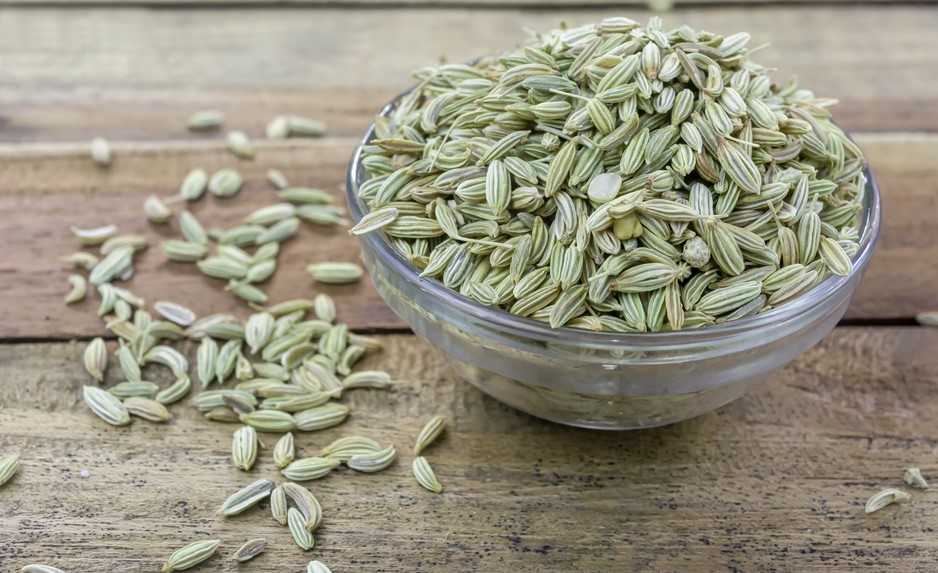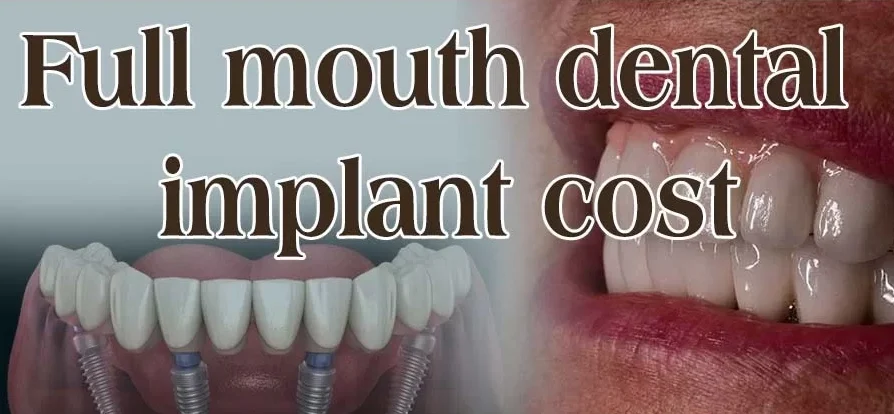Health
The Ultimate Guide to Fennel: Benefits, Uses, and Recipes

This versatile and aromatic herb has been a staple in cuisines around the world for centuries. But did you know that fennel offers more than just its delightful flavor? Packed with nutrients and powerful plant compounds, this humble ingredient boasts an impressive array of health benefits. Whether you’re looking to boost your immune system, support digestion, or simply add a burst of flavor to your dishes, fennel is here to deliver. Join us as we explore the science-backed benefits, delicious recipes, and fascinating facts about this incredible herb. Get ready to embrace the wonders of fennel it’s time to spice up your culinary adventures.
10 Science-Based Benefits of Fennel and Fennel Seeds
Fennel and fennel seeds offer a wealth of science-based benefits that make them a valuable addition to any diet. They are highly nutritious, packed with essential vitamins, minerals, and fiber. These wonder plants contain powerful plant compounds like antioxidants and phytonutrients that have been linked to various health benefits such as reducing inflammation and supporting brain health.
Additionally, fennel seeds may help suppress appetite due to their high fiber content. They also possess properties that can benefit heart health by reducing cholesterol levels and blood pressure. Moreover, the unique compounds found in fennel have shown promising potential in fighting cancer cells and protecting against certain types of tumors. Furthermore, breastfeeding women may find relief through consuming fennel as it has been traditionally used to improve milk production.
While more research is needed on some potential benefits like improving digestion or promoting weight loss – there’s no denying the overall impressive impact this herb can have on your wellbeing! From boosting immunity to enhancing flavor profiles in culinary creations – it’s clear that fennel is truly a powerhouse ingredient worth exploring further!
Highly nutritious
Fennel is not only a flavorful addition to your meals, but it also packs a powerful nutritional punch. This versatile vegetable is rich in essential vitamins and minerals that can support overall health and well-being.
First and foremost, fennel is an excellent source of vitamin C, which plays a crucial role in boosting the immune system and promoting collagen production for healthy skin. Additionally, it contains significant amounts of potassium, folate, and fiber – all vital nutrients that contribute to heart health and digestion. So don’t underestimate this humble bulb – incorporate fennel into your diet for its impressive nutritional benefits!
Contain powerful plant compounds
Fennel is not just a tasty addition to your meals, but it’s also packed with powerful plant compounds that can benefit your health. These compounds include antioxidants, volatile oils, and flavonoids, which contribute to the unique aroma and flavor of fennel.
One of the key plant compounds found in fennel is anethole. Anethole has been shown to have anti-inflammatory and antimicrobial properties, making it potentially helpful for reducing inflammation in the body and fighting off harmful bacteria. Additionally, fennel contains other beneficial compounds like limonene and quercetin that have been linked to various health benefits such as improved digestion and reduced risk of chronic diseases.
So when you sprinkle some fennel seeds on your salad or enjoy a warm cup of fennel tea, not only are you adding great flavor to your dish but also reaping the rewards of these powerful plant compounds!
Fennel seeds may suppress appetite
Fennel seeds have long been touted for their potential appetite-suppressing properties. These tiny seeds are packed with nutrients and contain compounds that may help control hunger cravings.
Research suggests that the fiber in fennel seeds can promote feelings of fullness, leading to reduced calorie intake. Additionally, certain compounds found in fennel seeds may also interact with receptors in the brain involved in appetite regulation. This could potentially help curb overeating or snacking between meals.
So if you’re looking to manage your appetite and support healthy eating habits, adding a sprinkle of fennel seeds to your meals or enjoying them as a snack might just do the trick! Remember, though, while fennel seeds may offer some benefits when it comes to suppressing appetite, they should be used as part of a balanced diet and healthy lifestyle.
Can benefit heart health
Fennel’s potential to benefit heart health is yet another reason why this herb deserves a place in your kitchen. It contains compounds that may help lower cholesterol levels, reduce blood pressure, and improve overall cardiovascular function.
One of the key components in fennel responsible for its heart-healthy properties is potassium. This mineral helps regulate blood pressure by counteracting the effects of sodium and maintaining a healthy balance of fluids in the body. Additionally, fennel is rich in dietary fiber, which can aid in reducing cholesterol levels and preventing plaque buildup in the arteries. By incorporating fennel into your diet regularly, you may be able to support your heart’s well-being naturally.
May have cancer-fighting properties
Fennel, with its distinct licorice-like flavor, not only adds a delightful taste to your dishes but may also have potential cancer-fighting properties. Research suggests that the plant compounds found in fennel, such as anethole and flavonoids, possess antioxidant and anti-inflammatory effects that could help reduce the risk of certain types of cancer.
One study conducted on animals showed that fennel extract exhibited significant anticancer activity by inhibiting the growth of tumor cells. Another test-tube study observed that fennel essential oil had potent anticancer effects against breast cancer cells. While more research is needed to understand how these findings translate to humans, incorporating fennel into your diet can be a delicious way to potentially support your overall health. So why not give it a try?
May benefit breastfeeding women
Breastfeeding is a beautiful and important bond between a mother and her baby. And when it comes to supporting this natural process, fennel can lend a helping hand. Filled with essential nutrients like vitamin C, calcium, and iron, fennel not only nourishes the breastfeeding mother but also passes on these benefits to the little one through breast milk.
But that’s not all! Fennel has been traditionally used as a galactagogue, which means it may help stimulate milk production in lactating women. Its estrogen-like compounds have been found to promote prolactin levels, the hormone responsible for milk production. So if you’re looking for a natural way to enhance your breastfeeding journey, incorporating fennel into your diet could be just what you need!
Other potential benefits
In addition to the wide range of benefits we’ve already discussed, fennel may have several other potential health advantages. It has been suggested that fennel could help improve digestion and relieve symptoms of indigestion such as bloating and gas. Some studies have also found that fennel tea or extract may possess mild diuretic properties, which means it can promote urine production and potentially aid in reducing water retention.
Furthermore, preliminary research suggests that fennel may have antimicrobial properties and could potentially help fight against certain types of bacteria. Additionally, some animal studies have shown promising results indicating that fennel extract might possess anti-inflammatory effects. However, more human-based research is needed to confirm these findings and determine the extent of these potential benefits.
Precautions
It’s important to note that while fennel offers numerous health benefits, there are a few precautions to keep in mind. Individuals with allergies or sensitivities to celery, carrots, or mugwort may also have an allergic reaction to fennel. If you experience any symptoms such as itching, swelling, or difficulty breathing after consuming fennel, it is advisable to discontinue use and seek medical attention.
Additionally, pregnant women should exercise caution when using fennel as it may stimulate the uterus and potentially lead to complications. It’s always best to consult with your healthcare provider before incorporating fennel into your diet if you are pregnant or breastfeeding. Remember that moderation is key when enjoying the benefits of this versatile herb!
The bottom line
When it comes to fennel, the bottom line is clear: this versatile herb offers a plethora of benefits for your health and well-being. From its high nutritional content to its potential cancer-fighting properties, fennel has been used for centuries in various cultures around the world. Whether you enjoy it raw, cooked, or as a flavorful addition to your meals, incorporating fennel into your diet can have a positive impact on your overall health.
But remember, while fennel may offer numerous benefits, it’s important to use caution when consuming it. Some people may experience allergic reactions or digestive issues when ingesting fennel. It’s always best to consult with a healthcare professional before adding any new food or supplement to your routine.
In short, if you’re looking for an herb that not only adds flavor but also provides numerous health benefits, look no further than fennel. Give this humble plant a try and discover the amazing ways it can enhance both your cooking and your well-being!
Customer Reviews and Testimonials
When it comes to fennel, the positive reviews and testimonials from satisfied customers are pouring in. People all over the world have discovered the amazing benefits of this versatile herb and can’t stop raving about it.
Customers love how fennel adds a unique flavor profile to their dishes, whether in salads, soups, or roasted vegetables. Many have also reported feeling more energized and refreshed after incorporating fennel into their daily routine. From improved digestion to reduced bloating, people are experiencing firsthand the powerful effects of this natural remedy.
But don’t just take our word for it – listen to what others have to say! Customers praise fenne’l for its delicious taste, health benefits, and versatility in various recipes. It’s no wonder that fenne’l has become a staple ingredient in kitchens around the world.
Discover the magic of fennel for yourself by trying out some of our recommended recipes! Stay tuned as we delve deeper into how this incredible plant can transform your culinary experience while providing numerous health benefits along the way.
About Fennel and Outside Table
Fennel, with its delicate fronds and aromatic bulbs, is a versatile vegetable that has been cherished for centuries. Whether you’re a seasoned chef or just starting to explore the culinary world, fenne’l can be a delightful addition to your repertoire.
Outside Table is an online hub dedicated to celebrating nature’s bounty and inspiring creative cooking. And what better ingredient to spotlight than fennel? From its rich history in ancient civilizations to its vibrant role in modern cuisine, fenne’l offers both flavor and health benefits that are worth exploring.
At Outside Table, we believe that food should not only nourish our bodies but also bring joy and delight to our taste buds. That’s why we’re excited to share the wonders of fenne’l with you. So join us as we dive into the fascinating world of this humble yet extraordinary vegetable!
Fennel Description and Etymology
Fennel, with its delicate fronds and aromatic bulbs, is a captivating herb that has captured the attention of culinary enthusiasts and herbalists alike. Its unique flavor profile, reminiscent of licorice and anise, adds depth to dishes and beverages around the world. But what exactly is fenne’l?
Botanically known as Foeniculum vulgare, fenne’l belongs to the Apiaceae family along with other notable herbs like parsley and dill. It is an herbaceous perennial plant that can grow up to 6 feet tall, with feathery leaves and clusters of yellow flowers that bloom in summer. The name “fennel” comes from the Latin word “foeniculum,” which means hay or straw – a nod to the plant’s wispy foliage.
Fascinatingly enough, fenne’l has been used for centuries for both culinary and medicinal purposes. In ancient times, it was revered by Greeks and Romans who believed it had magical properties. Today, we continue to appreciate this versatile herb for its unique taste and potential health benefits. So next time you come across those delicate fronds at your local market or in your garden – remember the rich history behind this enchanting herb!
Fennel Cultivation and Production
Fennel, a versatile and aromatic herb, is cultivated and produced in various parts of the world. The cultivation process involves planting fenne’l seeds in well-drained soil with ample sunlight. It can be grown both as an annual or perennial crop.
Once planted, fenne’l requires regular watering to ensure proper growth and development. It typically takes about 90-115 days for fenne’l plants to mature and be ready for harvest. During this time, farmers need to monitor the plants closely, ensuring they are free from pests and diseases.
After harvesting, the fenne’l bulbs are carefully cleaned and processed before being transported to markets or used for further production purposes. Fennel seeds are often dried before being packaged and sold separately. With its increasing popularity among chefs and home cooks alike, the demand for fenne’l continues to grow worldwide.
Fennel Uses and Nutrition
Fennel is not only a delicious addition to many dishes, but it also offers an array of health benefits. From its crunchy bulb to the fragrant seeds, every part of this versatile plant can be used in cooking. Fenne’l is low in calories and high in fiber, making it a great choice for those looking to maintain a healthy weight or improve digestion.
In addition to its nutritional value, fenne’l contains powerful antioxidants and anti-inflammatory compounds that may help reduce the risk of chronic diseases such as heart disease and cancer. Its aromatic flavor adds depth to recipes like soups, salads, and stews while providing essential nutrients like vitamin C, potassium, and manganese. Whether you enjoy it raw in salads or cooked into savory dishes, incorporating fenne’l into your diet is a tasty way to boost your nutrition and support overall wellness.
Fennel in Cuisine
Fennel is not only a versatile and nutritious vegetable, but it also adds a unique flavor to various dishes. In Mediterranean cuisine, fenne’l bulbs are commonly used raw in salads or roasted as a side dish. The subtle licorice-like taste of fenne’l pairs well with citrus fruits, making it an excellent addition to refreshing summer salads.
Furthermore, fenne’l seeds are often incorporated into spice blends and used as a seasoning for meats and fish. They add depth and complexity to curries, stews, and marinades. Fennel’s aromatic qualities also make it a popular choice for infusing oils or vinegars, adding an extra layer of flavor to dressings or sauces. Whether you enjoy the crisp crunch of fresh fenne’l or prefer the warm aroma of toasted fenne’l seeds, this herbaceous plant is sure to elevate any culinary creation!
Botany and Chemistry of Fennel
Fennel, scientifically known as Foeniculum vulgare, is a flowering plant that belongs to the carrot family. It has feathery leaves and yellow flowers that bloom in clusters. The plant can grow up to 6 feet tall and is native to the Mediterranean region.
The chemical composition of fenne’l includes various essential oils such as anethole, which gives it its characteristic licorice-like flavor and aroma. Other compounds found in fenne’l include limonene, alpha-pinene, and myrcene. These natural chemicals not only contribute to the distinct taste of fennel but also possess antioxidant properties that may provide health benefits when consumed.
Similar species and Varieties of Fennel
Fennel is a unique and versatile herb that belongs to the carrot family. While fenne’l has its own distinct flavor and aroma, there are some similar species and varieties that share similar characteristics. One such variety is bronze fenne’l, which has beautiful purple-bronze foliage that adds an ornamental touch to any garden.
Another close relative of fenne’l is Florence fennel or finocchio, which is cultivated for its bulbous stem rather than its seeds or fronds. This variety offers a milder flavor compared to regular fenne’l but still retains those delightful licorice undertones. Whether you’re experimenting with different flavors in your culinary creations or simply looking to expand your herb garden, exploring these similar species and varieties of fenne’l can add new dimensions to your cooking adventures!
Fennel in Different Cultures and Cultivation Practices
Fennel, with its aromatic flavor and medicinal properties, has been cherished in various cultures around the world for centuries. From ancient Egypt to modern-day India, fenne’l has played a significant role in culinary traditions and herbal medicine practices.
In Mediterranean cuisine, fenne’l is commonly used in dishes like salads, stews, and roasted vegetables. It adds a unique licorice-like taste that complements seafood and pairs well with citrus flavors. In Indian cuisine, fennel seeds are often incorporated into spice blends and used as a natural digestive aid after meals.
In terms of cultivation practices, fenne’l thrives in warm climates with well-drained soil. While it can be grown from seed or transplanted as young plants, it requires regular watering to ensure proper growth. Farmers often rotate their crops to prevent disease buildup in the soil.
The diverse uses of fenne’l across different cultures highlight its versatility and widespread popularity throughout history. Whether it’s adding depth to your favorite recipe or exploring its traditional healing properties. Fennel continues to captivate taste buds around the globe.
How to Use Fennel: Recipes and Tips
Now that we’ve covered the numerous benefits and uses of fenne’l. It’s time to dive into some exciting recipes and tips on how to incorporate this flavorful herb into your meals.
1. Roasted Fennel: Slice the fenne’l bulbs, toss them with olive oil, salt, pepper, and any other desired herbs or spices. Roast in the oven at 400°F (200°C) for about 30 minutes until tender and caramelized.
2. Fennel Salad: Thinly slice the fenne’l bulb using a mandoline or sharp knife. Toss it with arugula, shaved Parmesan cheese, lemon juice, olive oil, salt, and pepper for a refreshing salad.
3. Braised Fennel: Cut the fenne’l bulb into wedges or thick slices. Sauté them in butter or olive oil until lightly browned. Add vegetable broth or white wine along with garlic cloves and fresh herbs like thyme or rosemary. Cover and simmer until tender.
4. Fennel Tea: Crush one teaspoon of fenne’l seeds using a mortar and pestle or spice grinder. Place them in a cup of boiling water and let steep for 10 minutes before straining. Enjoy this soothing tea after meals to aid digestion.
5.Fresh Crunchy Slaw Shred some cabbage finely together with sliced cucumber.
Mix these vegetables together with thinly sliced fenne leaves.
Health
Finding Balance: The Path to Personal Growth Through Individual Counselling in Vancouver

In the heart of Vancouver, a bustling and vibrant city known for its stunning landscapes and diverse culture, many individuals seek solace and understanding through the journey of personal growth and mental wellness. Individual counselling has emerged as a beacon of hope for those navigating the complexities of life, offering a unique opportunity to explore personal challenges in a safe and supportive environment. This blog delves into the essence of individual counselling in Vancouver, emphasizing its significance and how it caters to the unique needs of its inhabitants.
The Essence of Individual Counselling
Individual counselling is a therapeutic process tailored to meet the unique needs of each person. It provides a confidential space where individuals can express their thoughts, feelings, and concerns without judgment. This one-on-one approach facilitates a deep understanding of personal issues, ranging from anxiety, depression, and stress, to relationship challenges and life transitions. In Vancouver, with its fast-paced lifestyle and diverse population, individual counselling serves as a crucial resource for personal development and emotional well-being.
Why Seek Individual Counselling in Vancouver?
Vancouver’s dynamic nature, while offering numerous opportunities for growth and adventure, can also present various stressors that impact mental health. The city’s competitive job market, high cost of living, and the pressures of urban life can lead to feelings of isolation and anxiety. Moreover, the cultural diversity, although enriching, may pose challenges for individuals in finding a sense of belonging or navigating cross-cultural dynamics. Individual counselling provides a personalized approach to address these specific concerns, promoting resilience and self-awareness among Vancouverites.
The Therapeutic Journey
Embarking on individual counselling is a journey of self-discovery and healing. It begins with building a trusting relationship with a therapist, where one feels safe to unveil personal struggles. The process involves exploring past experiences, current life situations, and future aspirations, all while developing coping strategies and skills for emotional regulation. In Vancouver, therapists employ a variety of modalities, including cognitive-behavioral therapy (CBT), mindfulness-based stress reduction (MBSR), and narrative therapy, ensuring a holistic approach to mental health.
The Role of Environment in Counselling
Vancouver’s natural beauty and serene landscapes play a significant role in the therapeutic process. Many counsellors incorporate elements of nature and mindfulness practices into their sessions, leveraging the city’s environment to foster mental and emotional healing. The proximity to the ocean, mountains, and parks offers an ideal backdrop for reflective practices and mindfulness, enhancing the counselling experience.
Accessibility and Inclusivity
One of the key aspects of individual counselling in Vancouver is its commitment to accessibility and inclusivity. Recognizing the diverse needs of its population, counselling services are offered in various formats, including in-person, online, and hybrid models, to accommodate different preferences and lifestyles. Additionally, therapists in Vancouver are increasingly focusing on cultural competency, ensuring that counselling practices are respectful and sensitive to the cultural backgrounds and identities of their clients.
Conclusion
Individual counselling in Vancouver stands out as a vital service for those seeking to navigate the ebbs and flows of life with greater insight and emotional balance. It offers a sanctuary for personal exploration and growth, tailored to the unique rhythm of city life. Whether grappling with life transitions, relationship issues, or the pursuit of personal growth, counselling provides a pathway to resilience and well-being. In embracing the journey of individual counselling, Vancouverites can find the strength to thrive amidst the challenges and beauty of their vibrant city.
Health
Understanding the True Cost of Full Mouth Dental Implants

Are you considering full mouth dental implants but unsure about the costs involved? Understanding the true cost of this life-changing procedure is crucial for making informed decisions. In this comprehensive guide, we will delve into the various factors that determine the cost of full mouth dental implants and explore ways to make this investment in your oral health more affordable. Let’s uncover the secrets behind the cost of full mouth dental implants together!
How Much Do Dental Implants Cost?
When considering dental implants, cost is a significant factor to contemplate. The price of dental implants can vary based on several factors, including the number of teeth being replaced and any additional procedures required. It’s essential to consult with your dentist to get an accurate estimate tailored to your specific needs.
A single tooth implant typically ranges from $1,000 to $3,000, but this cost may increase if bone grafting or other preparatory treatments are necessary. For multiple tooth implants or full mouth reconstruction, the total expenses can add up considerably. Understanding these costs upfront can help you plan accordingly and explore financing options if needed.
While the initial investment in dental implants may seem daunting, it’s important to consider the long-term benefits they offer in terms of improved oral health and confidence. By prioritizing your dental care now, you are investing in a brighter smile and better overall well-being for years to come.
The Cost of a Single Tooth Implant
When it comes to getting a single tooth implant, the cost can vary depending on several factors. The price typically includes the implant itself, the abutment that connects the crown to the implant, and the crown that acts as your new tooth. Keep in mind that additional procedures like bone grafting or extractions may also affect the overall cost.
The quality of materials used for your implant can impact pricing as well. Higher-quality materials may come with a higher price tag but offer increased durability and longevity. It’s essential to discuss all available options with your dentist to find a solution that fits both your budget and dental needs.
While single tooth implants may seem pricey upfront, they are a long-term investment in your oral health and overall well-being. Remember, taking care of one missing tooth promptly can prevent further complications down the road.
The Cost of Multiple Tooth Implants
When it comes to multiple tooth implants, the cost can vary depending on the number of teeth being replaced. Each additional tooth will incur its own expense in terms of materials and procedures involved.
The cost of multiple tooth implants typically includes individual implant posts for each missing tooth, abutments to connect the prosthetic teeth, and custom-made crowns or bridges. The complexity of the case and any additional treatments needed can also impact the overall cost.
Factors such as pre-surgery preparations, post-operative care, and follow-up appointments are all aspects that contribute to the total expenses associated with multiple tooth implants. It’s essential to consult with your dentist to get a personalized estimate based on your specific dental needs.
While the upfront cost may seem significant, investing in multiple tooth implants can provide long-term benefits by restoring oral health, improving functionality, and enhancing aesthetics for a confident smile.
The Cost of Full Mouth Implants
Have you been considering full mouth dental implants but are unsure about the cost? Understanding the financial aspect of this procedure is essential in making an informed decision. Full mouth implants can vary in price depending on several factors, including the number of implants needed and any additional treatments required.
The cost of full mouth implants typically includes the implant posts, abutments, and custom-made crowns for each missing tooth. This comprehensive treatment aims to restore your smile’s functionality and aesthetics effectively. While it may seem like a significant investment upfront, many patients find that the long-term benefits outweigh the initial costs.
Keep in mind that additional expenses such as diagnostics, consultations, sedation options, and post-operative care should also be factored into your budget when planning for full mouth dental implants. Consult with your dentist to get a detailed breakdown of all potential costs involved in the process.
Remember that investing in your oral health through full mouth implants can lead to improved confidence, better oral function, and overall quality of life. Prioritize your dental health by exploring financing options or payment plans offered by dental clinics to make this transformative treatment more accessible for you.
Additional Costs of Dental Implants
When considering dental implants, it’s essential to factor in additional costs beyond the initial procedure. These extra expenses can vary depending on individual circumstances and post-operative care requirements.
One common additional cost is the need for bone grafting or sinus lifts to ensure a strong foundation for the implants. This may be necessary if there isn’t enough bone density in the jaw to support the implants effectively.
Another potential expense is temporary restorations or provisional crowns while waiting for permanent replacement teeth to be created. These interim solutions help maintain function and aesthetics during the healing process.
Regular follow-up appointments with your implant dentist are crucial for monitoring healing progress and adjusting treatment as needed. These visits may incur fees but are vital for long-term implant success.
Don’t forget about maintenance costs like professional cleanings and routine check-ups to keep your dental implants in top condition over time. Investing in proper oral hygiene products can also contribute to their longevity and overall health of your mouth.
Does Insurance Cover Dental Implants?
When it comes to covering the cost of dental implants, insurance can be a bit tricky. Insurance policies vary widely in what they cover, and dental implants are often considered a cosmetic procedure rather than a medical necessity.
Some dental insurance plans may offer partial coverage for certain aspects of the implant process, such as the consultation or restoration phase. However, it’s rare for insurance to fully cover the entire cost of dental implants.
It’s essential to check with your specific insurance provider to understand what aspects of the implant procedure may be covered under your plan. Some policies may have exclusions or limitations when it comes to covering dental implants.
If your insurance doesn’t cover dental implants or only provides limited coverage, you still have options. Many dentists offer financing plans or payment options to help make this investment more manageable for patients seeking full mouth reconstruction through implants.
Factors Affecting Full Mouth Dental Implant Costs
When considering the cost of full mouth dental implants, there are several factors that can influence the overall price. One significant factor is the number of implants needed to restore your smile fully. The more teeth that require replacement, the higher the total cost may be.
Another crucial aspect affecting costs is the type of materials used for the implants. High-quality materials and advanced technology can impact pricing but often come with added durability and longevity benefits.
The location of the dental clinic also plays a role in determining costs. Urban areas typically have higher overhead expenses which can reflect in treatment prices compared to rural settings.
Furthermore, any additional procedures required before implant placement, such as bone grafting or sinus lifts, can contribute to increased expenses. Choosing an experienced implant dentist with a proven track record may result in higher fees but ensures quality results and patient satisfaction.
Financing and Payment Options
When considering full mouth dental implants, it’s essential to explore financing and payment options that can make this investment more manageable. Many dental clinics offer flexible payment plans tailored to fit individual budgets. These options allow patients to spread out the cost of treatment over time, making it more affordable.
Some clinics may also accept healthcare financing through third-party providers, offering low or even no-interest plans for qualified applicants. This can help alleviate the financial burden of paying for full mouth dental implants upfront. Additionally, some insurance plans may cover a portion of the implant costs, so it’s crucial to check with your provider to understand your coverage.
Patients should discuss their financial concerns openly with their dentist or clinic staff. Transparent communication about budget constraints can lead to finding a suitable payment plan that works best for each individual’s situation. By exploring various financing options, individuals can embark on their journey towards achieving a healthy and confident smile without unnecessary stress about the cost involved in the process.
The Value of Full Mouth Dental Implants
When considering the value of full mouth dental implants, it goes beyond just the monetary cost. The ability to eat and speak comfortably, regain confidence in your smile, and improve overall oral health are priceless benefits.
Full mouth dental implants offer a long-term solution compared to other temporary options. They are durable and can last a lifetime with proper care, making them a worthwhile investment in your oral well-being.
Having a complete set of teeth not only enhances aesthetics but also plays a crucial role in maintaining facial structure and preventing further tooth loss. Dental implants provide stability and support to surrounding teeth, promoting better oral function.
The emotional impact of restoring your smile should not be underestimated. Improved self-esteem and social interactions are invaluable aspects of full mouth dental implants that can positively influence various areas of your life.
In essence, the value of full mouth dental implants extends far beyond their initial cost, offering lasting benefits for both physical comfort and emotional well-being.
Making Full Mouth Dental Implants Affordable
Making full mouth dental implants affordable is crucial for individuals seeking this dental treatment. By understanding the true cost of full mouth dental implants and exploring financing and payment options, patients can make informed decisions about their oral health. With proper planning, research, and assistance from insurance coverage or financing programs, the financial burden of full mouth dental implants can be manageable. Prioritizing oral health through affordable implant options can lead to improved quality of life and overall well-being for those in need of extensive dental restoration.
Health
The Process of Tooth Reshaping: What You Need to Know

Have you ever considered perfecting your smile? Tooth reshaping might be your answer. This simple procedure can polish your appearance dramatically. Before you decide, understanding the process is key. It’s quick, painless, and can make a big difference.
Here, we’ll explore what tooth contouring steps involve and why it might be right for you. Join us as we break down everything you need to know about this dental transformation.
What is Tooth Reshaping
Tooth reshaping, also known as dental contouring, is a cosmetic dentistry procedure aimed at improving the appearance of your teeth. It involves removing small amounts of tooth enamel to alter the shape, length, or surface of one or more teeth. This dental procedure can be an ideal solution for those looking to make minor adjustments for a more appealing smile.
The Initial Consultation
The first step in the tooth reshaping process is a consultation with a cosmetic dentist. During this visit, they will evaluate your dental health to ensure you are a good candidate for the procedure. They will discuss your goals and what you hope to achieve with tooth reshaping, providing a clear understanding of the possible outcomes.
Preparing for the Procedure
Preparation for tooth reshaping is minimal but essential. Your dentist might take X-rays to check the size and location of the pulp of each tooth to ensure there’s enough bone support. They will also outline the precise areas of enamel that will be removed during the reshaping process.
The Reshaping Process
The actual tooth reshaping is a gentle and precise process. Using specialized dental instruments, your dentist will carefully remove small amounts of enamel, sculpting your teeth into a more desired shape. The process is usually painless and can be completed in one visit, depending on the extent of reshaping needed.
Finishing Touches
After the reshaping is done, your dentist will polish your teeth, giving them a smooth and attractive finish. This final step not only enhances the appearance but also helps prevent plaque buildup on the newly contoured surfaces. The result is a smoother, more uniform smile.
Recovery and Aftercare
One of the benefits of tooth reshaping is that there is no recovery time needed. Patients can resume their normal activities immediately after the procedure. However, maintaining good oral hygiene practices is essential to preserve the results and overall dental health.
Understanding the Risks
While tooth reshaping is a safe procedure, understanding the potential risks is important. Removing enamel can sometimes make a tooth more sensitive to temperature. There’s also a limit to how much enamel can be removed, which your dentist will carefully consider to prevent damage to your teeth.
Achieving Your Dream Smile with Tooth Reshaping
Tooth reshaping stands out as a minimally invasive dentistry and cost-effective way to enhance your smile. By carefully sculpting the enamel, it can correct minor imperfections and bring out the best in your teeth.
The convenience of dental contouring, requiring no recovery time, makes it an attractive option for busy individuals. However, a consultation with your dentist is crucial to ensure it’s suited for you. Tooth reshaping offers a pathway to smile enhancement with minimal discomfort and time investment.
Head over to our blog for more interesting reads.
-

 Shops4 weeks ago
Shops4 weeks agoPublix Pharmacy Hours and Locations
-

 Shops4 weeks ago
Shops4 weeks agoStaples Store Hours: What Time Does Staples Open And Close?
-

 Shops8 months ago
Shops8 months agoWalmart Vision Center Hours
-

 Shops4 weeks ago
Shops4 weeks agoWalgreen Pharmacy Hours: What Time Does It Open & Close?
-

 Business8 months ago
Business8 months agoDesigner Clothing: Making a Statement
-

 Entertainment6 months ago
Entertainment6 months agoRoku Red, White, and Blue: Streaming the cultural heart of America
-

 Shops4 weeks ago
Shops4 weeks agoWalmart Deli Open & Close Hours
-

 Shops8 months ago
Shops8 months agoKroger Deli Hours & Store Locations
